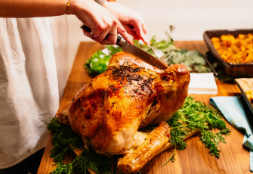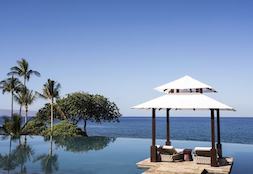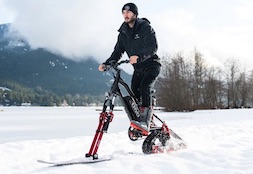A little over two years ago, I left on a trip: 12 months, 12 different international cities, about 75 people I only knew through a Facebook group. The plan was to work remotely, for this website, and travel as I did so, to live in other places, walk their streets, meet their people, eat their food. Eat their food. I have to admit, I kind of felt like Anthony Bourdain in this regard—at least in the small way we allow ourselves to feel like someone larger-than-life.
Suffice it to say, no single person has influenced how—how much, how many—Americans travel abroad than Anthony Bourdain. This isn’t a fact, but it’s true. Everybody knows who he is, even if they haven’t seen his shows, No Reservations and, later, Parts Unknown, or read his numerous books, including the seminal warts-and-all memoir that started it all, Kitchen Confidential. And those who have seen him, heard or read his voice, have done so with zeal. We wanted his life; we wanted his adventures; we also just wanted the comfort of watching someone slurp a hot bowl of noodles in an alleyway, somewhere in Asia.
More than anyone else, Bourdain seemed to eagerly invoke and passionately challenge the entrenched notion of the American abroad. His shows’ overarching thesis could be boiled down to: Don’t be a fucking idiot tourist. He demanded we respect and appreciate the local culture, and not just the superfluously beautiful aspects, which litter any old travel guide. He wanted us to get out of our comfort zone; he wanted us to engage; he wanted us to learn; he wanted us to stay open and curious. He wanted us to live like a local—and not in the comfortable way Airbnb wants us to. No, he wanted us to live like a local, at least for a few days or weeks, with all the complications and discomfort and joy that entails.
One accessible shortcut to achieving these goals—which, as someone who’s been fortunate enough to travel as much as I have, is harder than he makes it look—is through food. Perhaps Bourdain’s single greatest contribution to my personal traveling experience was his limitless devotion to the dingy-looking restaurant, packed with locals, that nonetheless served delicious food. “Authentic" has become a dirty, meaningless word, but it’s the word that most comes to mind when it comes to these spots, and I guess in this case it just means a place so true to itself it doesn’t feel the need to be anything else—to show off for tourists like me. It knows what it is. And it is good.
No matter how hard you try, it can be difficult to find these places—especially when you’re a shy American who doesn’t speak the language. They also aren’t places that necessarily want to be found. I kept my eyes peeled for them—in Prague, in Belgrade, in Lisbon, less in London, in Madrid, in Barcelona, more in Mexico City, in Bogotá, in Medellín, in Lima, in Córdoba. I had help, of course. A privilege of the program I traveled with was a team of in-the-know locals, who showed us several such spots. Some of them arose simply out of convenience—they were close to my office or apartment, and looked cheap. That felt true—like a quote-unquote “local” thing to do.
Not all of these places were better than the places that came highly recommended, on Trip Advisor and the like. The lunch spot with no menu in Bogotá, near my apartment in Chicó Norté had pretty tasteless food; I made a mistake or two with some “meat fingers” in Belgrade. But the local bar in Envigado, outside of Medellín, with old musicians who played when they felt like it and a strange, yet delicious assemblage of tapas was one of my favorite spots on the entire planet. And operating under the principle, in Mexico City, that the less-fancy the place, the better the tacos will be, served me well. I also learned to not only love but respect street food—to treat it, as Bourdain did, with his adoration for “meat in tube form,” as not some cheap whatever-thing, but a legitimate local delicacy on par with anything else.
Regardless of whether a place was good or bad, I never regretted the experience. If watching Bourdain do his thing taught me anything, it’s that any new, truly cultural experience is worthwhile. He was radically class agnostic—by which I mean, he never cared whether something was low or high class, it was all fucking tasty (and, more often than not, tastier when it came from somewhere with less wealth). The food might not have been memorable because of how it tasted. But it was always memorable because it was something new, in a new city—something you could only try there, in a hot, often crowded place, with no frills, maybe no menu, where the chef or waiter put a plate of steaming food in front of you, and you simply had to trust him.
Fellow UrbanDaddy editor, Hadley Tomicki, also remembers Anthony Bourdain.






